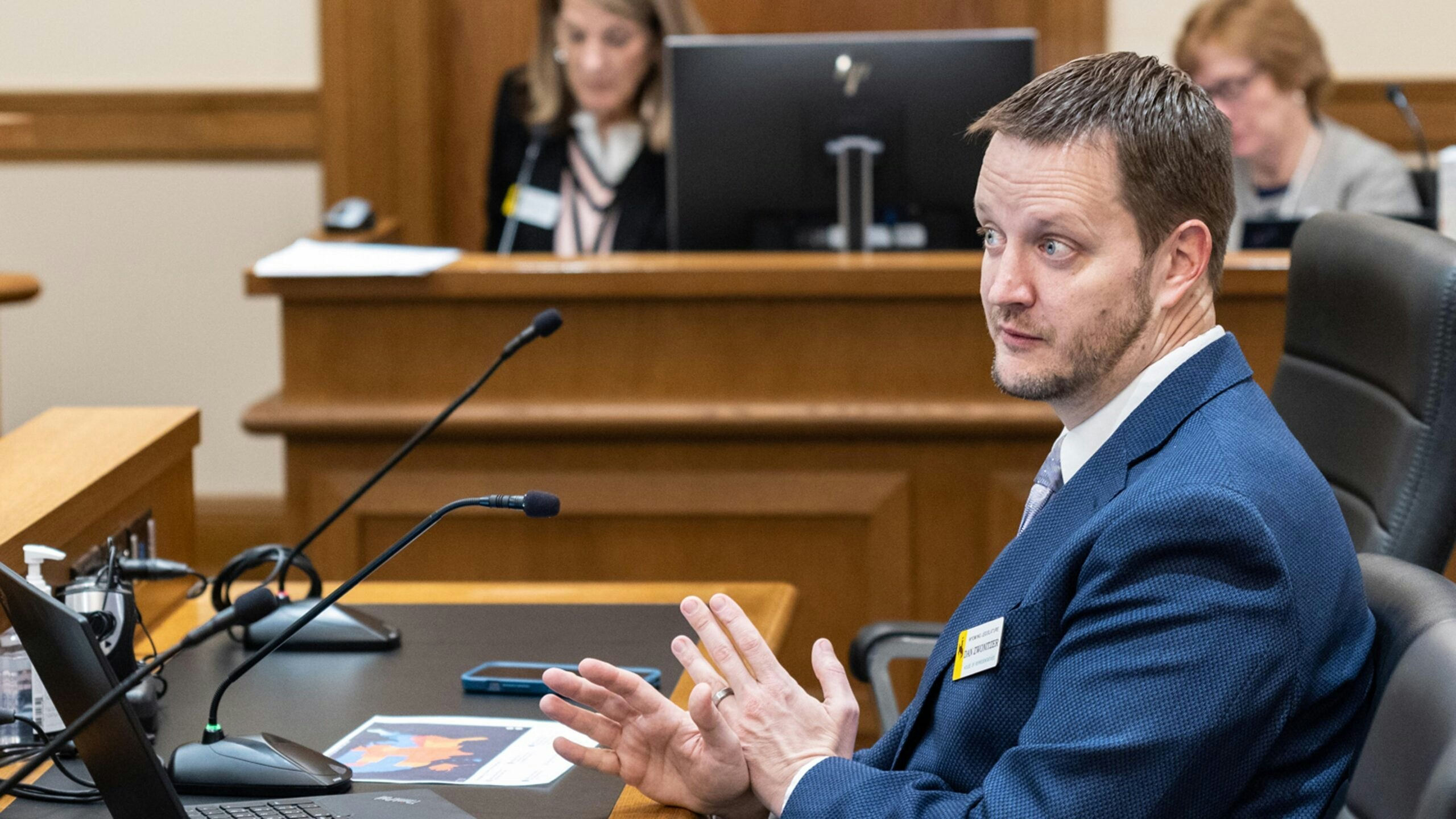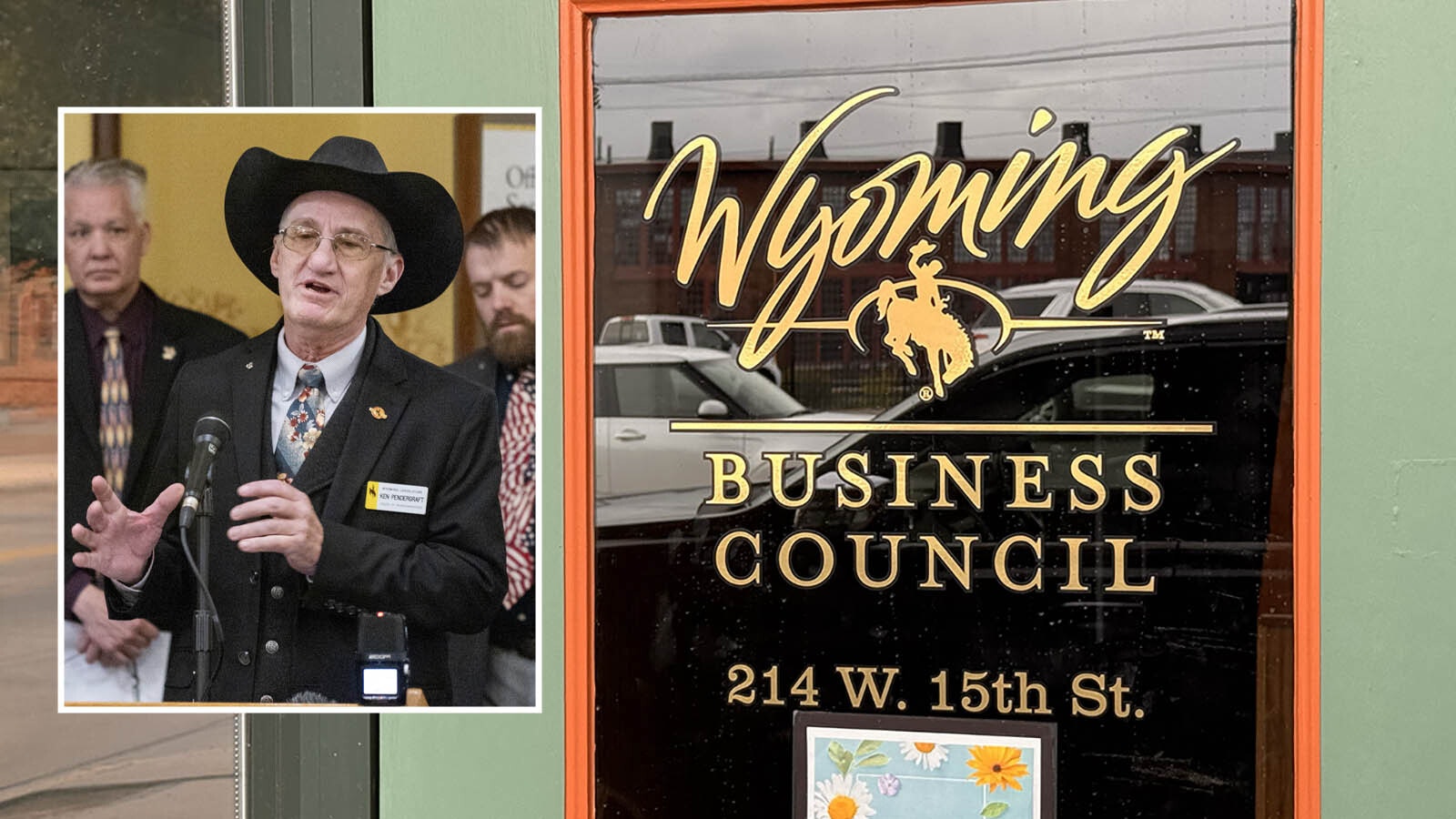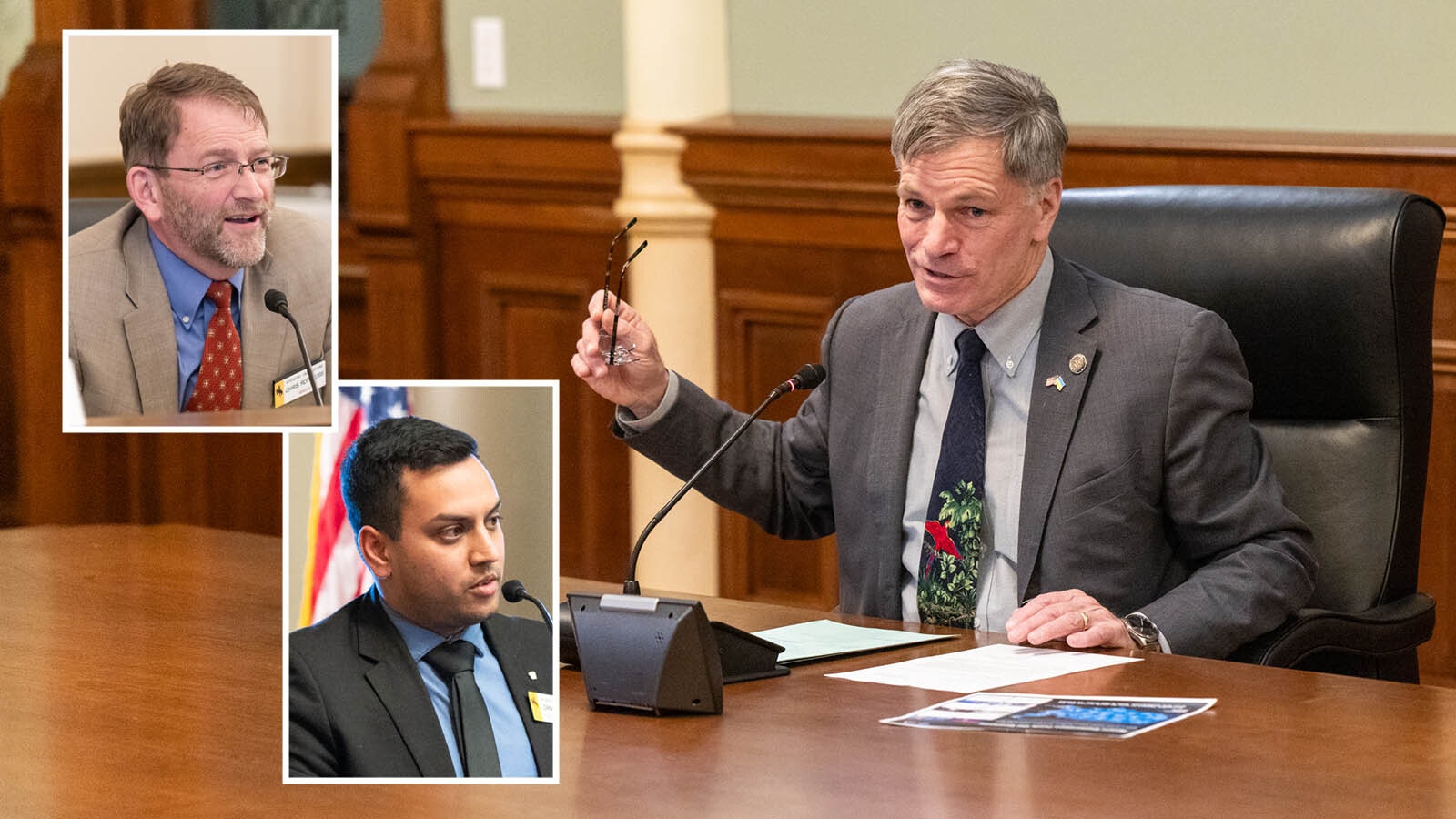Antonio Serrano, advocacy director for the American Civil Liberties Union of Wyoming, told Cowboy State Daily when he started voting and becoming engaged in politics, it helped him become a more productive member of society.
“Voting plays an important role in helping people with felony convictions return to society,” Serrano said. “After someone serves their time, they deserve a shot at rebuilding their life.”
Although he isn’t a felon himself, Serrano on Wednesday spoke in favor of “Restoration of voting rights-amendments,” a bill brought by state Rep. Dan Zwonitzer, R-Cheyenne. The bill would allow Wyoming residents convicted of multiple nonviolent felonies to vote once released from their term of incarceration.
The bill passed through the State Legislature’s House Labor, Health and Social Services Committee on Wednesday morning with a 5-4 vote.
“This is one more step to try and say, ‘we want to reintegrate you into society, and you’ve served your time, you’ve served your sentence, you now get your privileges back,’” Zwonitzer said.
A University of Minnesota analysis of formerly incarcerated Minnesota voters performed in 1996 showed that voters were half as likely to be rearrested as nonvoters.
Dan Shannon, director of the Wyoming Department of Corrections, agrees that providing the right to vote reduces recidivism.
“When individuals who are released are returned to our community and are being active in our community, it does lower recidivism rates,” Shannon, a 37-year Corrections employee said.
Current Laws
Current law states that only residents with one nonviolent felony on their record can vote in Wyoming. Those with violent felonies on their record cannot vote and this legislation would not change that.
Wyoming is one of seven states to allow some people with felony convictions to vote. Virginia and Kentucky are the only two states that do not allow any felons to vote. Vermont and Maine are on the opposite side of the spectrum, allowing people who are incarcerated to vote from prison. A few years ago when Florida allowed some former felons to vote, it automatically re-enfranchised 3 million people.
Polling from 2018 found that a majority of Americans on both sides of the political aisle support restoring the right to vote for formerly incarcerated people with felony convictions.
Although she is a more conservative member of the committee, Rep. Tamara Trujillo, R-Cheyenne, voted to support the legislation. Trujillo represents South Cheyenne, a district with many low-income voters.
Until 2003, Wyoming prohibited any resident with a felony on their record from voting. Then the state separated violent felonies from nonviolent felonies when it came to voting rights.
It started by allowing nonviolent felons to petition to vote five years after being released from incarceration. In 2017, the state decided to allow one-time nonviolent felons to have their voting rights restored automatically upon completion of their sentences.
Wyoming law requires people with a felony on their record prior to 2010 to apply with the state for the right to vote, a process Secretary of State Chuck Gray said usually requires an attorney.
“It’s a deterrent I suppose,” he said. “But there is a process there.”
Inadvertent Felony Voting
Gray said that although he has some concerns about allowing multiple-time felons being given the right to vote, he said it should be made more clear in Wyoming’s voter registration documents that another state’s election laws do not apply to former felons in Wyoming. He said there are no clear warnings in the current registration form.
“It needs some clarity to make clear that if your voting rights have been restored in another state it doesn’t mean it’s restored in the State of Wyoming,” Gray said.
In 2014, Cody resident David Koch pleaded guilty to three felonies after admitting on the radio that he registered to vote and voted in the 2010 election after being a convicted felon in Alaska.
“People who didn’t like him came after him after kind of admitting this during an interview he did,” Zwonitzer said. “He got caught in that trap.”
But Koch did sign an oath that he wasn’t a convicted felon when he registered to vote.
Zwonitzer said there are usually 7-10 people per voting cycle that are charged with felonies for illegally voting as a felon in Wyoming. The legislation would prevent charges against those who inadvertently try to vote when they are ineligible due to a past felony.
Feasibility
One of the biggest concerns brought by opponents of the bill would be the cost to the Wyoming Department of Corrections to initiate the change.
Shannon said it took two of his staff members 18 months to issue certificates to the newly eligible voters released after 2010.
He said instituting the changes proposed in House Bill 263
would require his department to search 14,269 records.
“Without the help (of money), it would take years to accomplish this,” he said. “If this bill were to pass, I would not be able to complete it without assistance.”
The Department of Corrections has 1,023 positions and 216 vacancies, Shannon said.
Shannon also said he would anticipate a flood of applications from those convicted of felonies prior to 2010 if the legislation were to pass, creating about 1,800 new eligible voters from that group alone.
A few members of the committee expressed concern about repeat felons being given the opportunity to vote, especially those with an egregious amount of felonies.
“If someone has had multiple nonviolent felonies, that may demonstrate a lack of judgment for someone we may not want to have voting rights returned,” Rep. Sarah Penn, R-Riverton said.
Zwonizter agreed with this point but worries about the administrative hurdles this could create for Department of Corrections staff.
Rep. Jeanette Ward, R-Casper, proposed the idea of preventing state legislators who have committed multiple felonies from being allowed to vote.
“I’m talking about people who have committed a nonviolent felony while serving the public trust,” Ward said. “I’m talking about elected officials.”
The legislation would not only affect the right to vote, but also to serve on a jury and hold public office.
Zwonitzer does not believe this legislation would result in a wave of new voters that would benefit the Democratic Party.
According to research conducted by criminologists Christopher Uggen and Jeff Manza in 2002, felon disenfranchisement was found to provide a small but clear advantage to Republican candidates in every presidential and senatorial election from 1972 to 2000.
Zwonitzer said his bill has some flaws and vowed to the committee that some changes will be made if it is considered on the floor of the State House.
“Committee, I’ll pledge to you I will do some clean up work on the bill if it actually gets some legs,” he said.





